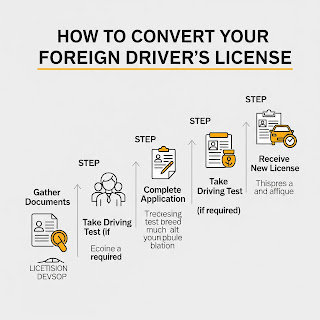Understanding Saudi Work Culture: A Guide for New Expats in 2025
Understanding Saudi Work Culture: A Guide for New Expats in 2025
Moving to Saudi Arabia for work can be exciting, but it also comes with a learning curve—especially when it comes to adapting to the local work culture. Whether you’re joining a corporate office in Riyadh or working in the oil sector in Dammam, understanding Saudi professional etiquette, cultural norms, and daily routines is key to succeeding as an expat.
This guide breaks down what expats need to know about workplace dynamics in Saudi Arabia as of 2025.
---🕋 Respect for Religion Shapes the Workplace
Saudi Arabia is deeply rooted in Islamic traditions, and religion plays a visible role in daily work life. Five prayer times are observed throughout the day, and businesses typically schedule breaks accordingly. It’s not uncommon for meetings, tasks, or office hours to shift slightly based on prayer schedules.
- Friday is the weekly holy day: The Saudi workweek usually runs from Sunday to Thursday. Fridays are reserved for prayers and family time.
- Ramadan work hours: During the holy month, Muslim employees work reduced hours (often 6 hours per day). Non-Muslim expats usually follow the same adjusted schedule.
Being respectful of religious practices, such as dressing modestly and avoiding eating publicly during Ramadan, will help you build strong relationships with colleagues.
---🤝 Business Etiquette and Professional Communication
Saudi business culture is formal yet hospitable. Face-to-face meetings are highly valued, and personal relationships often precede professional agreements.
- Greet properly: A handshake is standard between men. Men should wait for women to initiate a greeting.
- Small talk matters: Don’t jump straight into business. Take time to exchange pleasantries—it's a sign of respect and interest.
- Use titles and formal language: Address people with "Mr.," "Dr.," or their professional titles.
You can read more about social interactions and daily etiquette here.
---🕔 Working Hours and Office Environment
Typical office hours vary by company, but many operate from 8:00 AM to 4:00 PM or 9:00 AM to 5:00 PM. In 2025, there is a growing trend of hybrid work and digital collaboration, especially in international firms.
Keep in mind:
- Be punctual, but also be patient—delays are not unusual.
- Meetings may start late or run long, especially if hospitality (coffee, tea, dates) is involved.
- Hierarchy matters: Always address the senior-most person first in meetings.
Tip: Some companies observe a two-shift system with a break from noon to 4 PM, so clarify expectations with your employer.
---👩💼 Gender Norms and Workplace Integration
Over the past few years, Saudi Arabia has made significant progress in including women in the workforce. In 2025, many offices have mixed-gender teams, especially in urban areas and multinational companies.
That said, gender segregation may still be practiced in traditional sectors or government institutions. Be respectful of boundaries, and follow company policies regarding communication and seating arrangements.
Dress code: Modesty is expected from both men and women. Men typically wear business casual or thobes, while women should wear conservative attire and may or may not wear abayas depending on the workplace.
---📈 Career Growth and Work Culture Expectations
Saudi employers value loyalty, humility, and commitment. Career advancement is often linked to building trust and contributing to long-term goals.
- Initiative is respected, but hierarchy must be followed.
- Job-hopping is not common—long-term commitment is appreciated.
- Networking is essential: Relationships matter, both within and outside the office.
Banking and Managing Money in Saudi Arabia: A Complete Guide for Expats .
---🌍 Multicultural Workplaces
Many expats in Saudi Arabia work in companies with employees from India, Pakistan, the Philippines, Egypt, Sudan, the UK, and the US. Respect for cultural diversity is essential.
Pro tip: Learn basic Arabic greetings, even if your office operates in English. It helps build rapport.
---🧾 Employment Contracts and Benefits
Before signing an offer, make sure your employment contract is clear about:
- Working hours and overtime pay
- Vacation days (usually 21–30 days per year)
- Medical insurance coverage
- Housing or housing allowance
- End-of-service benefits (gratuity)
It’s also important to understand your rights under Saudi labor law, including rules on contract termination, Iqama sponsorship, and dispute resolution.
---📌 Final Thoughts
Saudi work culture is rooted in tradition, hospitality, and structure. While it may differ from what you’re used to, embracing it with curiosity and respect will help you succeed as an expat.
Whether you’re working in tech, education, construction, or hospitality, taking time to understand local values will set you apart—and make your life in Saudi Arabia far more rewarding.
💬 Have questions about your Saudi workplace experience? Contact me here or share your thoughts in the comments.
— The Author, My Life in Saudi




Comments
Post a Comment